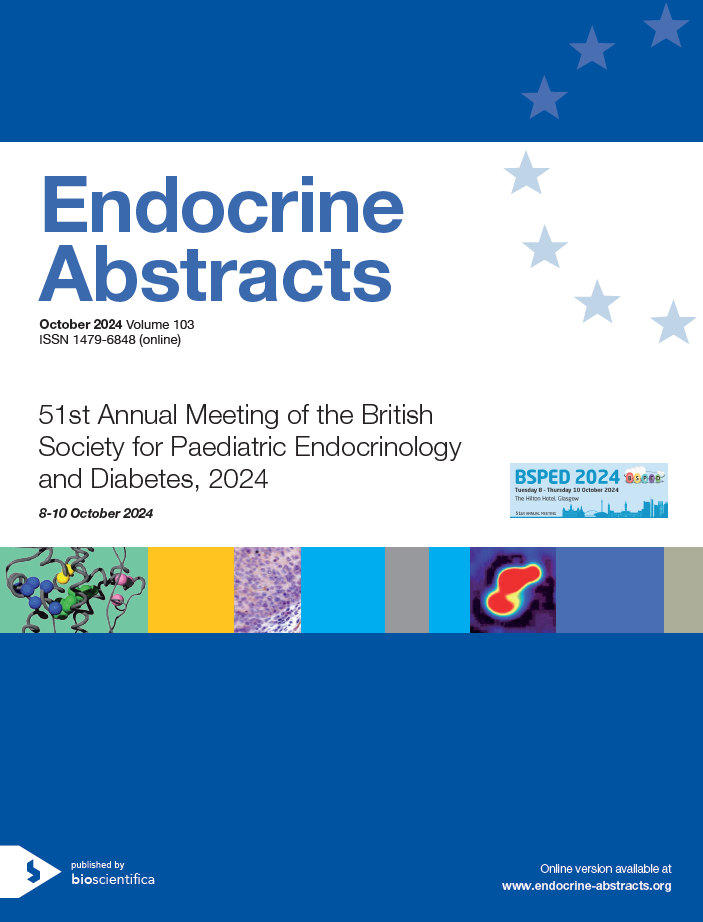
51st Annual Meeting of the British Society for Paediatric Endocrinology and Diabetes
Glasgow,
UK
08 Oct 2024 - 10 Oct 2024

Oral Communications
Endocrine Oral Communications 4
ea0103oc10.1 | Endocrine Oral Communications 4 | BSPED2024
Health-related quality of life in severe obesity: baseline PedsQL scores from two tier 3 paediatric weight management services
Hawton Katherine , Apperley Louise , Canvin Lauren , Parkinson Jennifer , Owens Meghan , Semple Claire , Holt Alanna , Easter Shelley , Clark Kate , Ramakrishnan Anand , Gokul Ramya , Clarke Ellie , O'Brien James , Giri Dinesh , Senniappan Senthil , Hamilton-Shield Julian
ea0103oc10.2 | Endocrine Oral Communications 4 | BSPED2024
The effect of lifestyle and pharmacological interventions on body composition in childhood obesity
Dixon Hannah , Apperley Louise , Senniappan Senthil , Parkinson Jennifer
ea0103oc10.3 | Endocrine Oral Communications 4 | BSPED2024
Increased prevalence of hypertension in paediatric turner syndrome
Sutherland Aimie , Lucas-Herald Angela , Mason Avril
ea0103oc10.4 | Endocrine Oral Communications 4 | BSPED2024
Education of sick day management of paediatric adrenal insufficiency: a national survey of paediatric endocrine nurse specialists
Bradford Anna , McKechnie Jennifer , AbdelRahman Shima , Mushtaq Talat , Ng SM , Tollerfield Sally , Laing Peter , Wong SC
ea0103oc10.5 | Endocrine Oral Communications 4 | BSPED2024
Single-centre review of use of gonadotrophin-releasing hormone agonists – are we outliers?
Thomas David , Woodhouse Amy , Wood Claire , Howard Sasha , Elder Charlotte
ea0103oc10.6 | Endocrine Oral Communications 4 | BSPED2024
Audit of pituitary dysfunction post moderate to severe traumatic brain injury and proposed surveillance guidance
McBay-Doherty Rhiannon , Stevenson Kim , McCusker Caroline , Flanagan Catherine , Abid Noina



